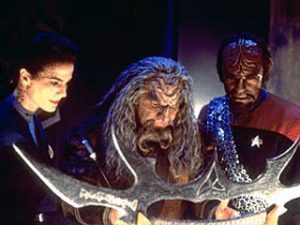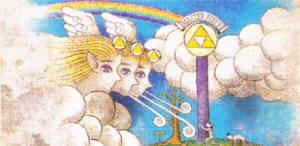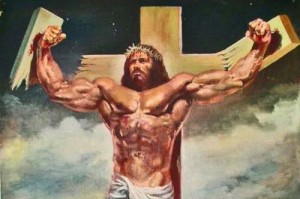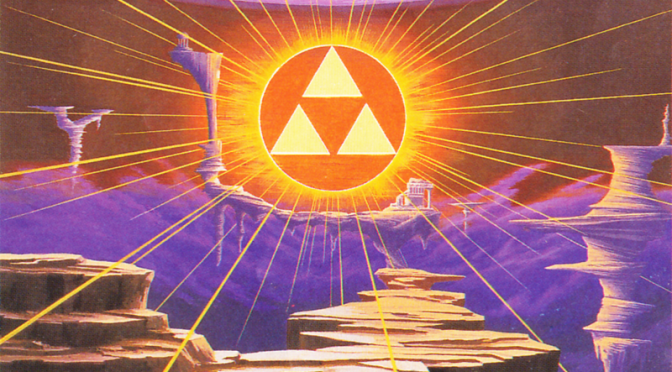Building a world is more than just the broad strokes. Every bit of finer detail gives a new layer of depth to your work that makes it feel more like a real, breathing world for your audience. It’s not that you want to bog people down in these details, but it’s good to have them available for when you can pepper them in without getting in the way of your story. And this is particularly true when you’re creating a world with more than just your run of the mill humans. If you’re including sentient creatures that don’t exist in our world, they need to feel like a real race.
A key aspect of making them feel real is establishing a culture for these creatures. Maybe they have their own kinds of music, their own foods, their traditions and rituals. Each of these is the sort of thing you’d expect to learn about another group of people in passing and learning it in passing about fictional characters can totally make them feel less fictional.
But this leads into some weird questions when you come to matters like faith. Religion, while not absolutely necessary, is part of the human condition. Even when you don’t actually believe in it, you’re still in part defined by the fact that you don’t believe in the same things other people do. It’s almost impossible to get through life without it coming up at some point, so it would be just as impossible for your characters to go on forever without it coming up in their lives. Perhaps it’s not something addressed in a specific story, but it still shapes a world view.
And this is the sort of thing you see handled quite well in some of the better speculative fiction. Alien races inevitably have an alien religion and those beliefs end up influencing their actions even when it’s not at the forefront. Even in a retcon it comes to make sense of things that previously would have seemed one dimensional. Why do the Klingons have such a war-like nature? Because they believe that where you end up in the afterlife depends on how much you lived like their warrior prophet Kahless who is essentially the violent Klingon version of King Arthur elevated to a messiah figure.

However, when the creatures in question are a little closer to home, like in a fantasy setting, the idea of these religions often becomes something of an afterthought. Because they’re from Earth it’s assumed they believe in one of the common Earth-born religions even if that doesn’t entirely make sense. As a result we often have three approaches taken towards these creatures. The first is to simply assign them whatever is the most popular religion of their time and location, regardless of levels of interaction with humans. The second is to give them the faith prevalent in the mythology of their origin. And the third, when people want to buck this trend, is to apply what I prefer to call the “triangle philosophy” based on the adage, “if triangles had a god, he would have three sides”.
In the end, following these approaches without careful consideration can be half-assed because if you’ve followed this blog you’ll know sometimes those triangles might really be squares…
Divine Inspiration

The religion of your supporting cast and their various races isn’t necessarily a big deal to your audience. Unless you intend to focus your entire story on the beliefs of these other creatures, it likely won’t even be mentioned except when it provides a point of conflict or insight into that character’s actions. But on a creative level it can be incredibly helpful to know more about your character’s motivations. As I said once before, the most important question in character development is “why?” and this sort of thing can go a long way to answering that. It helps to make your characters react more spontaneously if you have a good idea of what they believe and why they believe it. Was it something they were taught growing up? Did they come to their world view on their own? Is it a tradition that could be reflected in others of their kind? All of these questions give a better sense of who your characters are and what they’re all about.
In my own work, the Agent of Argyre series and the Alterpedias connected to them, I’ve long approached the subject with a couple personal rules. Given that the conceit of the entire premise is that a great deal of mythology was true or influenced by true events, it’s important for me to know how some of these characters view those events in question. At one time these races directly interacted with the likes of Horus, other Egyptian gods, and the Olympian Pantheon. Fast forward to the present and angelic beings who can literally walk on water are running for political office. So it was important for me to ask myself if these characters should respond to these figures in awe and reverence.
The answer I eventually arrived to was… sometimes.
Since, in that world, they were once all human or born to formerly human parents, a lot of them were also born into a human religion. But I don’t leave it there. The first rule of thumb I follow is that, if they were old enough to have experienced the events in question, they won’t believe in something they could have personally witnessed. While the majority of Vampires in my work are Catholic because of their European origins, a few notable individuals are not because they were actually around when Jesus was alive and have a unique perspective on what was happening at that time. If you live in a world where walking on water is a semi-common talent, you’re unlikely to be impressed by it. Had one of thse people been on the boat when Jesus walked on water, they likely would have replied, “That’s cute, one of my cousins can do the same trick, now get on the boat.”

If you think about it, that’s probably how Dwarves, Elves, and other norse creatures would react to the concept of Norse religion. Though we often have an image of them believing in roughly the mythology they originated from, it would be a tough sell to them on many levels. If your people actually knew Odin, interacted with him, and had disputes with him – you probably wouldn’t believe he was the allfather. Human history is filled with kings trying to claim they were god while associating themselves with powers from beyond, and rarely did that concept survive once they’d passed on. Why would Odin’s contemporaries see him as more than a boastful war-hawk of a king? Certainly he was powerful and influential, but Ragnarok proved he could die – and that’s usually a deal breaker on divinity.

The second rule of thumb I follow is that isolated races won’t have adopted a human religion at all. Human history shows that getting other people to believe in your religion is uniquely difficult and comes with a heavy dose of incredible violence. World history is soaked in the blood of martyrs and the most successful method of spreading a faith was to conquer the place and force everyone to attend church. Why would anyone who has never been conquered or assimilated into a culture adopt the beliefs of that culture? Despite their proximity, it would be impossible for the people of North Sentinel Island to have adopted Hinduism – they’ve killed most of the Hindus they’ve met. I imagine the same would have been true of Ogres until relatively recently.
And the third rule of thumb I follow is that familiarity erodes “faith”. If someone has been exposed to enough of what we would consider the supernatural it’s possible they would stop believing it to be extraordinary. In kind of an inverse of Clarke’s Law, any magic, sufficiently common, is indistinguishable from science. We currently live in a world of wonders that we look at with an incredibly disinterested eye. I currently sit at a machine light enough for me to carry that can access all the world’s information and show me things that exist on other worlds. The fact we aren’t amazed by this goes to say that it’s likely supernatural creatures would fail to see why any of it is “super”.

For quite a few of my characters this translates to agnosticism or atheism. The oldest individuals have seen so much and have experienced so many things, their ability to believe in something as being extraordinary has been eroded to the point of our own interaction with common every day technology. They don’t necessarily reject the notion that something could be out there, they just know they’ve seen nothing that would suggest any human-written story is true. But that last part, that leaves open the path for that third method and the “triangle philosophy” mentioned before.
The triangle philosophy, the idea that a god reflects the ego of its believers, is a pretty solid idea based on a lot of world cultures but isn’t necessarily true at all times. If you’ve read this blog before then you may be familiar with the Alterantive Mythologies series where I do some (painfully brief) looks into other religions and mythologies around the world. And, while it’s true taht a human face often gets attached to some or even all gods when given time, many religions actually tend to reflect something else. Yes, it would make sense if the god of the Dwarves happened to be a Dwarf of supernatural traits (perhaps he’s incredibly tall), but it would make just as much sense if it wasn’t Dwarf-like at all.

Generally mythologies which require belief in the unknowable will reflect something other than the believer. Aztec mythology had several human-like deities, but it also features jaguars, thunderbirds, and serpents which hold just as high a status as the humanoid gods. The Egyptians believed in animal faced humanoid gods, but many of these started out as animals or the personification of natural objects like a golden disk representing the sun. As I’ve said before, if you live on a volcanic island, it’s very likely you’re going to worship the volcano because it frames so much of your life. If that volcano is peaceful, your island is fine. If it’s erupting, everything you know will be destroyed. And, naturally, that means you want to keep it peaceful as much as possible and will start to view it as something you can appease.

So then that leads to that fourth method I mentioned before: finding something truly important to the race and making that vital to their faith. While making gods resemble their believers over time is common, especially due to the influence of rulers who wish to be seen as god-like themselves, earlier gods are generally representative of something beyond a society’s control or ability. Animal deities, for instance, are often revered because of their impact on the environment and perceived powers. As I briefly touched in the Alterpedia tweets, I picture early Gnomes having some faith built around burrowing animals which they would build their lives around. This faith isn’t common to the time of my novels, but it’s something that would be there if I ever had a story centered on those Gnomes.
In the end, while none of this is required, understanding the beliefs of your inhuman characters and how they got to those beliefs will help shape their reactions. Commonly accepted tropes aren’t necessarily the right way to go and it’s understandable if we lean towards “triangles”. But by really stepping into the shoes of the creatures we write about for a moment and looking at the world the way they would, we could find interesting, unique angles to approach these things which can make our speculative creatures more tangible. Because sometimes, what we expect of people…
Doesn’t make sense in context.
(I write novels, screenplays, and tweets. I have faith in my ability to someday be successful at that.)







